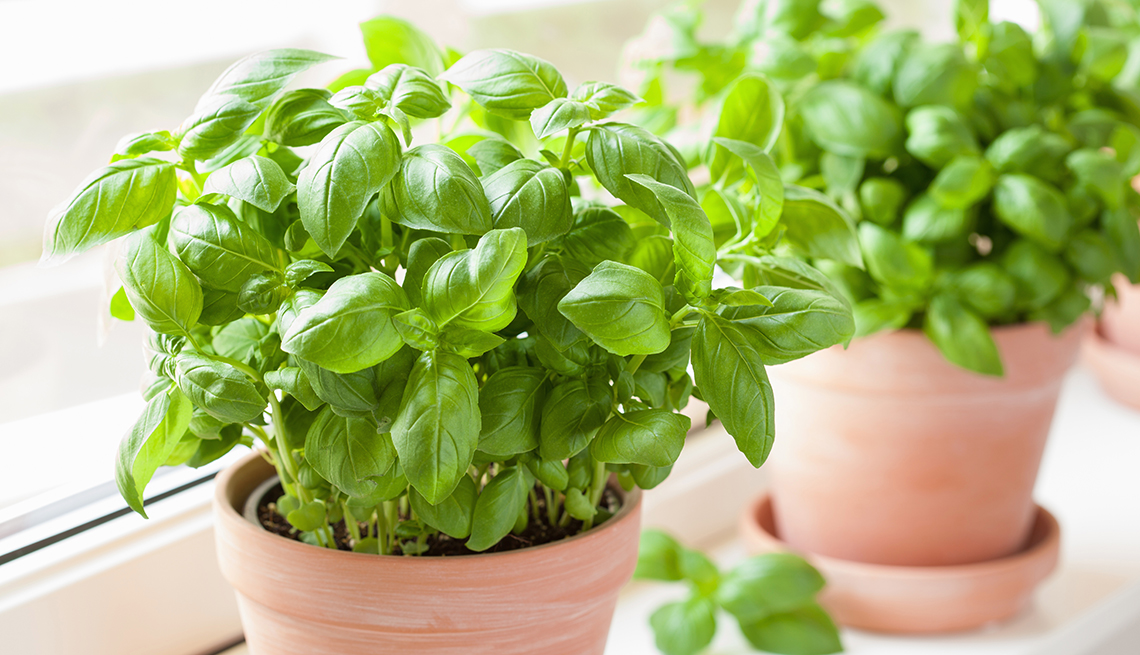
10 fresh herbs that have surprising health benefits
- Select a language for the TTS:
- UK English Female
- UK English Male
- US English Female
- US English Male
- Australian Female
- Australian Male
- Language selected: (auto detect) - EN
Play all audios:

5. LAVENDER Although it’s an edible herb, most research on lavender focuses on its fragrance. The scent of lavender, a member of the mint family, can relieve anxiety, improve sleep and melt
away irritability and stress, according to several studies. Trying to fall asleep? A small bag of lavender blossoms slipped under your pillow at night calms the nervous system by lowering
blood pressure and heart rate, relaxing you enough to lull you to sleep. TIP: If you want to use lavender as a cooking or cake-decorating herb, be sure it’s designated as culinary grade.
Start out with a small amount; lavender can overpower a dish if you use too much. 6. LEMON BALM The wrinkled heart-shaped leaves of this perennial herb were used as far back as the Middle
Ages to reduce stress, relieve anxiety and provide a good night’s sleep. It seems to work as well now as it did then. Lemon balm can bring on a feeling of calmness and lift a feeling of
negativity, according to a study in the journal _Psychosomatic Medicine. _Combined with other soothing herbs such as valerian and chamomile, it can promote relaxation. TIP: This minty herb
can help heal cold sores and relieve itchy bug bites. Soak 2–4 teaspoons of crushed leaves in a cup of boiling water for 10 minutes. Cool. Use cotton balls to dab the tea on the sores
throughout the day. 7. OREGANO Its minty flavor and aroma make oregano a winner when it comes to flavoring everything from tomatoes to potatoes. Along with bringing out the best in food,
oregano offers some useful health benefits. The leaves are rich in carvacrol, a compound that has proved effective against norovirus, a highly contagious stomach bug. In addition, oregano
tea can help boost the immune system and help the body fight infections. TIP: To make oregano tea, mash the leaves of a sprig of oregano in a mug, pour in a cup of boiling water, let steep
for five minutes, remove the leaves, add lemon juice and honey to taste. Enjoy! 8. ROSEMARY Rosemary is a rich source of several antioxidants and anti-inflammatory compounds that may boost
the immune system and improve circulation. This piney herb also contains naturally occurring chemicals that can help keep blood sugar in check, important in controlling diabetes. Carnosic
acid, an antioxidant abundant in rosemary, helps protect brain cells from age-related changes such as deteriorating verbal skills and increased difficulty in learning new information, says
Chris D’Adamo, director of the Center for Integrative Medicine at the University of Maryland. He adds that rosemary contains other compounds that may also contribute to improved memory. TIP:
Rosemary has an assertive flavor, so go easy when you add it to food. 9. SAGE Sage, an evergreen shrub, is a member of the mint family. Its distinctive velvety leaves have a minty, cool
fragrance. According to a study in the _Journal of Traditional and Complementary Medicine_, sage tea has been customarily used to treat bronchitis, cough, asthma and more. One study
concludes that sage can help memory and elevate mood and alertness. As if that’s not enough, it some research has found that drinking sage tea improves levels of cholesterol and
triglycerides among people with type 2 diabetes. TIP: A little sage goes a long way, so use it sparingly when seasoning food.
